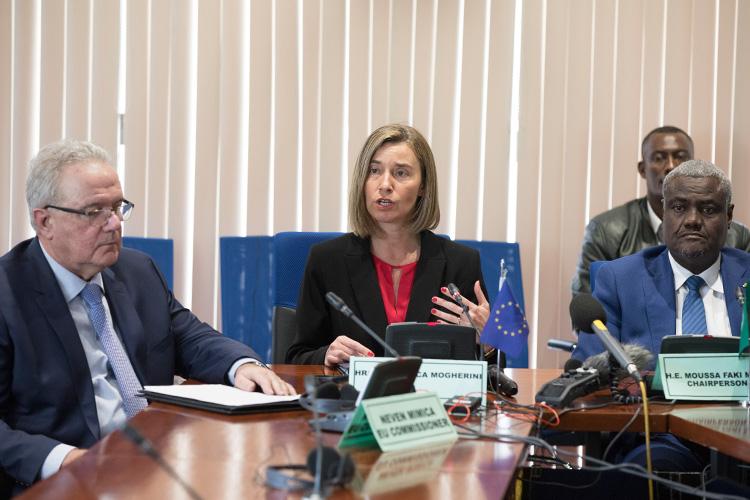Europe and Africa: a partnership of equals

The AU-EU summit will be a meeting unlike previous ones. For the first time, the two unions are meeting to set common objectives and joint responses. And, for the first time, the summit discussions will be putting the spotlight on young people – our young people. This is far more than just a slogan.
For several months, representatives of African and European youth have been working together to come up with tangible proposals that will be submitted to the heads of state and government in Abidjan. Africa is the youngest continent on the planet – half of its population is under 20. The only way to overcome its challenges and free this immense potential is to start to involve the new generation with its ideas and energy.
Some people see these young people as a threat. We see them as a driving force and a hope for our two continents. The challenge of the summit is to give these young people a high-quality education, a voice, suitable employment and a clean, safe environment, and to make them drivers of development in their countries.
Europe and Africa are only 14 kilometres apart. As with all neighbours, what happens to one has repercussions for the other. Whether it’s job creation, combating climate change, regulated management of migration or the fight against terrorism and radicalisation, the key to success lies in our partnership. A partnership of equals, no longer constrained by the donor-recipient relationship that is now a thing of the past. Since no one understands Africa’s problems better than Africans, the only efficient means of working for Africa is to work together with Africa. This requires the two continents to shoulder their responsibilities, in awareness of their common interests.
This change of mindset has been reinforced over recent years. Both at the negotiations on the Paris Agreement and at those on the adoption of the Sustainable Development Goals, Europe and Africa adopted joint positions that made major contributions to the success of these two processes. In New York in September, we decided to establish continuous coordination between the AU, the EU and the United Nations in order to better contribute to drawing up the global agenda.
It is in this spirit of partnership that Europe has proposed innovative measures to tackle the new challenges. We have just launched a European external investment plan to mobilise at least EUR 44 billion of investment. We want to encourage private investments from Europe that meet the sustainable growth goals set by our African partners, in particular in the most vulnerable parts of the continent.
In the area of security, the EU was first to support the regional cooperation initiative between the G5 Sahel countries, granting EUR 50 million for the creation of their joint force to combat trans-border terrorism and organised crime. Finally, for the past two years the migration trust fund has been supporting projects to deal with the root causes of instability and irregular migration in Africa.
Now we want to go further and prepare for the future. Figures show that the working-age population in Africa is expected to increase by 70 % over the next 20 years. Therefore, the summit must bring about practical responses regarding investments in education, technology, the environment, governance, and peace and security in order to ensure fair, inclusive and sustainable development.
On 29 and 30 November, we must live up to the expectations of our young people, as real partners.
Authors:
- Federica Mogherini, High Representative of the European Union for Foreign Affairs and Security Policy/Vice-President of the European Commission
- Neven Mimica, Commissioner for International Cooperation and Development
